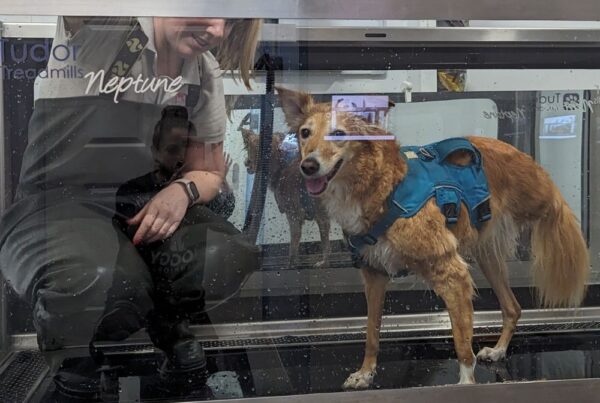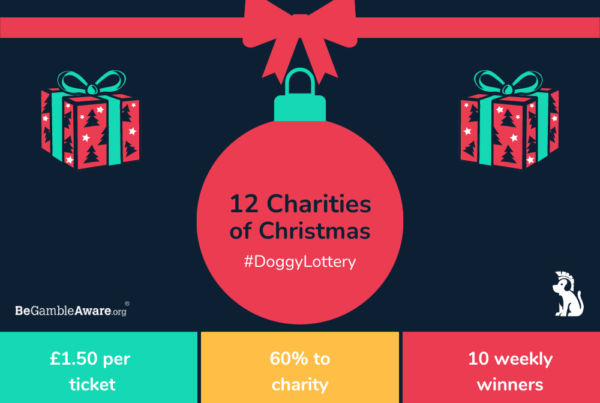
Coping with the loss of your dog can be very difficult. The bond between an owner and an animal is unique, and when they die, the grief can be hardt to cope with sometimes. Pet Grief Specialist, Julie Wood, shares some really helpful insight.
Grief is a natural reaction to loss. When a beloved dog passes away it is often complicated because other people sometimes don’t understand how we feel. They may mean to be comforting or supportive but end up making things worse. If you have ever had anyone say to you “Well, you can get another one” or “He was only a dog” you will know what I mean. Work colleagues who are often sympathetic at first can find it difficult if they have to cover your shifts over an extended period of time and be less understanding as time goes on.
Guilt is the number one emotion clients talk to me about when they first come to a session.
It can be guilt because they feel they didn’t act soon enough if their dog has been ill, or guilt because they wonder if they should have given their dog longer before opting for euthanasia. Should they have tried more tests, or did they put their fur baby through too many? Should they have taken better out better pet insurance so they could afford more tests and operations, perhaps they should have chosen a different kind of food? Maybe they left the gate open and their dog got out, or perhaps they regret their choice of dog-sitter?
We feel guilty because we have to make the decisions for our dogs. We are responsible for our animals and we have to choose what to do. Whatever we do feels wrong.
I’m going to tell you about two of my clients to show you what I mean. (Their details have been changed a little for confidentiality.)
Sue came to see me because she could not get over the guilt of having to euthanize her spaniel, Topsy. It was during the first lockdown and Sue couldn’t be with Topsy at the end. She had to hand her over to the vet in the vet’s carpark and she was worried that Topsy would have been even more scared without her.
John came to see me because he was consumed with guilt after his dog, Digger, was euthanised. Digger was old and had been ill for a while. He had been to the vets for surgery many times. Every time he went, John reassured him that he was a good boy and that everything would be fine, and that Digger would come home soon. On Digger’s final trip to the vet John knew that Digger wouldn’t be coming home. John went into the vets with Digger and still told him he was a good boy, that everything was fine and he would come home soon. He told me that Digger looked at him with his big trusting eyes, and John knew that he was deceiving him. He felt guilty because he felt that he had lied to Digger.
So you can see that both owners loved their dogs completely and had nothing to feel guilty about. I always say to my clients that as long as they did what they did out of love they have nothing to feel guilty about.
If you have felt this way you are not alone.
Grieving is a process. When a person dies, we usually start the period of mourning by arranging a funeral or ceremony. With dogs we often don’t do that or are unsure of what to do. It’s something that can help enormously.
You don’t need to have a formal ceremony if you prefer not to. Whatever is right for you and your family is fine.
Some people get the ashes back from the vets or crematorium and don’t know what to do with them. Others don’t have the ashes back. There is nothing wrong with either of these things. Perhaps you are even considering a burial: If this is the case please make sure you have the relevant permissions, particularly for a larger animal.
Whatever you decide to do, a ceremony is important to mark the life and acknowledge the death of your pet. Something to bear in mind is, if you decide to scatter the ashes, have a burial or create a memorial area in your garden, what will happen if you need to move house in the future?
For this reason having special plants in plant pots is a good idea. Some people wrap the collar around the pot or have a favourite toy displayed in it too.
Some people like to have their special place inside. If you don’t want to have an urn on display, an area with photos will be suitable. You can even have jewellery made with fur or photographs of your fur baby inside. Some of my clients have lockets or keyrings with a photograph on one side and fur on the other.
Having an album all about your little one is a great idea particularly if you have children. You can fill it with photographs, poems, drawings, and stories. It is a great way to encourage discussions about your dog and allow everyone to share their feelings.
If you have children it may be their first experience of death and helping them through the process of grieving can lead to them being able to deal with other deaths a little better in the future.
Don’t be surprised if your children have questions. They may persist in asking you what happened at the vets or crematorium. Often they want to know what happens to the body. They are not being ghoulish; it is natural curiosity. However, if you are too upset to talk about it with them perhaps ask another trusted adult to discuss it with them. Also, if you have your dog’s ashes on view, your child might want to look inside the urn. If this is likely to upset you keep the ashes out of site.
The most important things to remember is that death is a natural part of life, and that grief is a natural reaction to the loss of someone important in your life.



